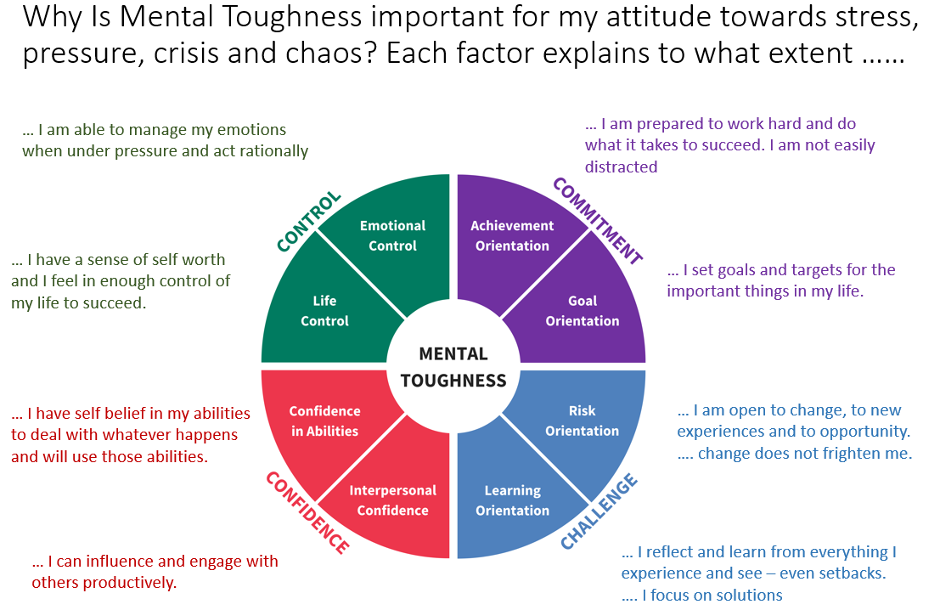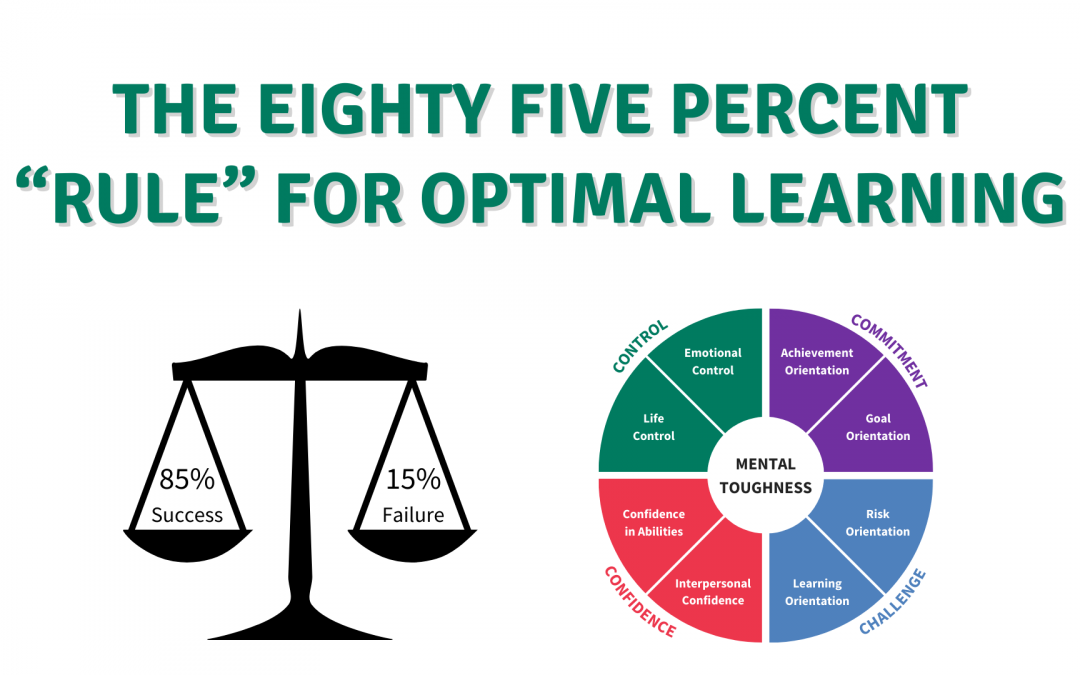Is there a sweet spot for failure and making the most of it?
Might your mental toughness matter?
The conventional wisdom is that we learn more from our mistakes than our successes. There is some truth in that.
But that doesn’t mean that failing at everything all of the time would make you the most learned person on the planet.
A team of researchers from the University of Arizona, Brown University, UCLA and Princeton in the USA have shed some useful light on this topic. See The Eighty Five Percent Rule for optimal learning | Nature Communications.
In their study, they “examine the role of a single variable, the difficulty of training, on the rate of learning. In many situations, we find that there is a sweet spot in which training is neither too easy nor too hard, and where learning progresses most quickly… we find that the optimal error rate for training is around 15.87% or, conversely, that the optimal training accuracy is about 85%.”.
So, 85% success, and therefore 15% failure, seems to be a sweet spot for learning while maintaining motivation and confidence.
If you want to improve, you should set task difficulty at a point where you are likely to fail 15% of the time.
As the researchers acknowledge they examined a single variable – the difficulty of training.
One of the eight factors in the 4Cs mental toughness concept is Learning Orientation. This too might be relevant. This describes the mental approach people adopt towards their experiences and the experiences of others around them. Some will reflect on events, good and bad, and will learn from those events.
Not everyone does that. Some ignore their experiences and as a consequence fail to learn from those experiences.
So, depending on your level of Learning Orientation, it might not matter if you rarely struggle and fail or if you do it all the time. If you are not minded to think about what has happened, you will learn very little.
For most people it would appear failing or struggling 15% of the time is the sweet spot.
But it begs a couple of questions.
If you are more mentally tough in terms of learning orientation does that mean that you need to fail less often to learn as much as a more normal or average person?
And, could more mentally tough people, especially with high learning orientation, speed up and optimise learning by setting a higher bar and therefore failing, say, 20-25% of the time?
Setting a higher (than 85%) bar in terms of risk is what another of the eight factors, risk orientation, represents.
A word of caution, as my colleague Dr John Perry points out the researchers call it a “rule” but that implies it applies to everyone. It is more accurate to describe this as an 85% guide. Some can fail more often without being discouraged. Other, more mentally sensitive folk, might need to succeed 95% of the time so that they do not feel like failures.
Ultimately, we probably go back to the key message of understanding your mental toughness. It’s self-awareness that matters. And that is where the MTQPlus psychometric measure can help.
Know yourself and you can create the opportunity to thrive.
The Eighty Five Percent Rule for optimal Learning
Robert C. Wilson, Amitai Shenhav, Mark Straccia & Jonathan D. Cohen
For more information about the mental toughness concept and the mental toughness measure – MTQPlus contact: headoffice@aqrinternational.co.uk or go to https://aqrinternational.co.uk/product/mtqplus-assessment
For information about becoming a licensed user of the MTQ suite of measures contact: headoffice@aqrinternational.co.uk
The MTQPlus measure is available in fourteen languages, accessible to more than 2/3rds of the world’s population.
Completion of the AQR Licensed user training programme is recognised by EMCC and ICF for CPD purposes.
The full eight factor 4Cs mental toughness concept is shown below:



